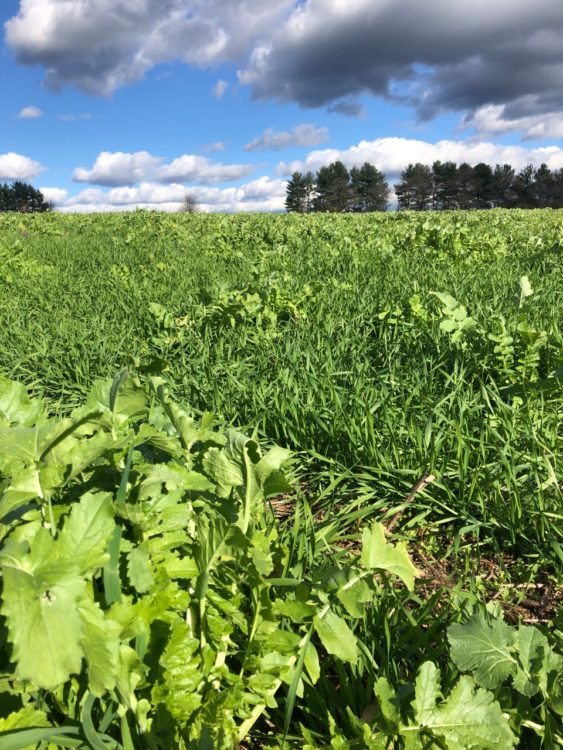In 2020, Epiphany Craft Malt released a climate resilience plan outlining our goals to improve our environmental sustainability. The plan stated that we would establish a baseline using our 2019 carbon emissions and natural resource usage and, later on, see how we were faring after taking tangible steps to improve our malting process’ efficiency.
Now, we can confidently say that we have reached a milestone that seemed far out of reach for us a small independent maltster. We achieved carbon neutrality for the operating year. As we outlined in our summer climate resilience plan, we wanted to mitigate our emissions quickly—as time is of the essence—by buying carbon credits that would support projects to reduce the amount of carbon in the atmosphere. We originally planned to offset a growing percentage of our emissions over the next three years, but an opportunity arose with Indigo Carbon — a division of Indigo Ag, which promotes the sequestration of one trillion metric tons or more of atmospheric greenhouse gases through investments in the agricultural industry. Once we established this partnership in the fall of 2020, we decided to go full throttle and go carbon negative this year by buying enough carbon credits to account for 105% of our 2020 emissions. So not only are we mitigating all of the carbon emissions we produced this year, but we’re doing a little extra too.As a result, we can not only say that Epiphany Craft Malt does not directly contribute to climate change, but that we’re actively reducing humanity’s impact as well, in what little way we can.
Over the past year, we watched the amount of carbon dioxide we produced per pound of malt—which included the farming, producing and related business activities—and added a few aspects like employee commute to work to our CO2 balance sheet with increased our specific numbers from 0.85 lbs of CO2 per lb of finished malt in 2019 to 0.93 lbs of CO2 per lb of malt in 2020. Bottom line for 2020, that means we have removed, and better yet, sequestered, a total of 421 metric tons of CO2 back into the farm soil.
The COVID-19 pandemic, which has had profound effects on the brewing and distilling industries, likely contributed to the relatively steep decline in total CO2 emissions that we produced this year, as we produced less malt than we did in 2019. However, the decline in the rate of CO2 produced per pound if malt indicates that we were successful in pinpointing and addressing inefficiencies in our malting process.
2020 has been a hard year on our health and businesses. It has shown how important it is to behave responsibly to keep other people in our community out of harm’s way. Climate change remains a real threat but requires a similar individual responsibility so the world as we know it has a future Check out our new climate resilience plan, which outlines our 2020 environmental metrics and our goals for the new year, for more information.
Practice responsibility with us and email Sebastian Wolfrum at snw@epiphanymalt.com to discuss what we can do together.

